Rick Ross, the larger-than-life rapper and entrepreneur, recently opened up about a deeply personal aspect of his life—the transformative power of performing on stage.

In a candid revelation, Ross shared that it is during these live performances that he can authentically be himself, shedding all worries and concerns that may accompany him offstage.
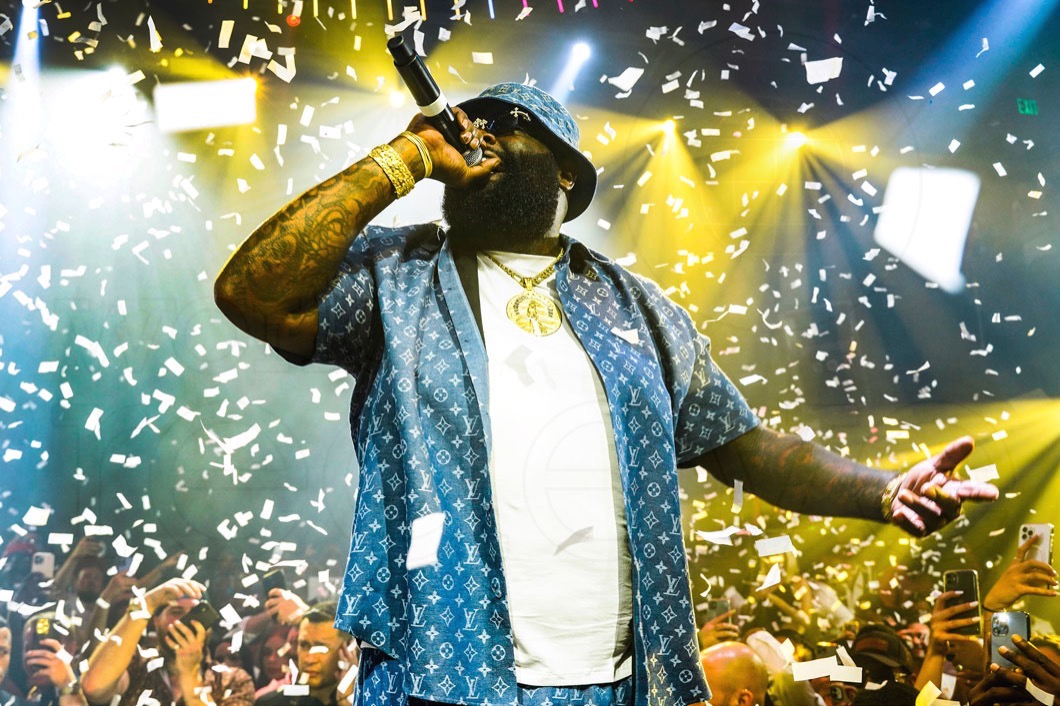
For an artist of Ross’s stature, whose public persona exudes confidence and opulence, the vulnerability expressed in this statement offers a glimpse into the complex nature of the entertainment industry.
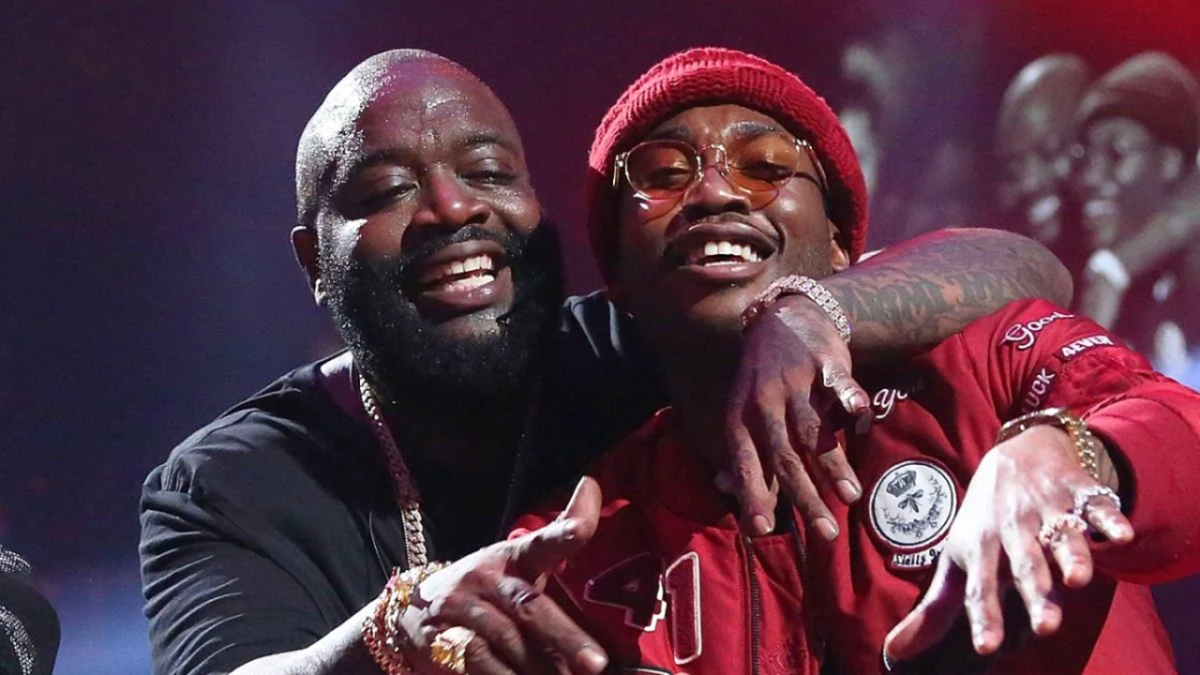
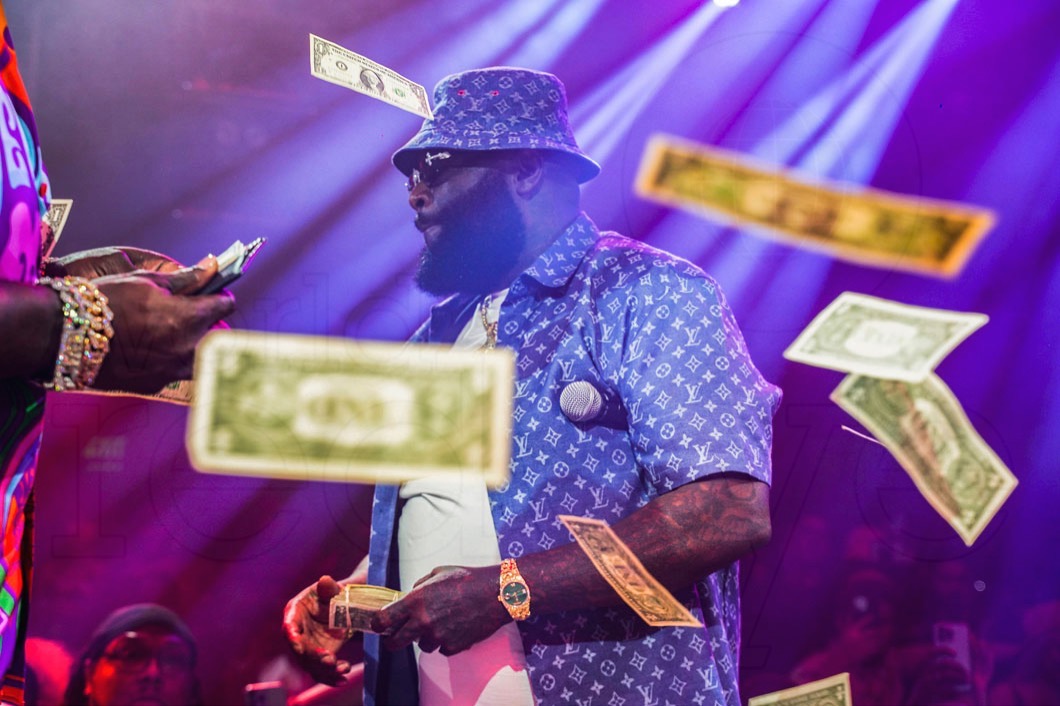
Despite his success and the façade of invincibility that often accompanies fame, Ross acknowledges the weight of the world that he carries beyond the spotlight.
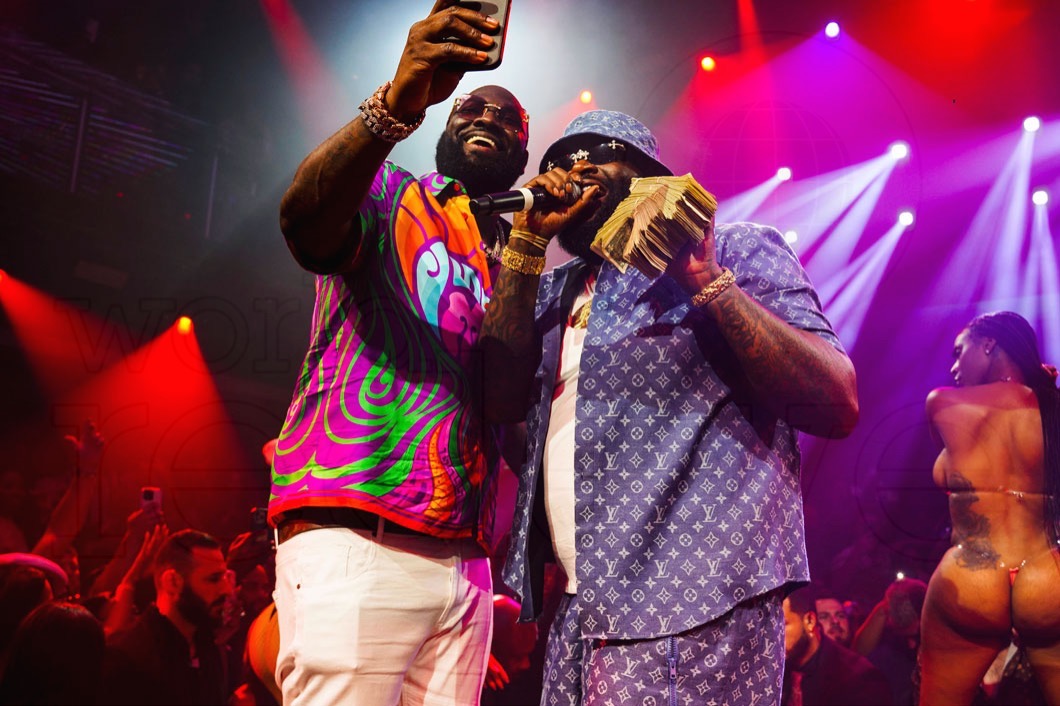
The stage becomes a sacred space, a realm where Rick Ross transcends the trappings of his larger-than-life image. It is here, under the spotlight, that he feels liberated from the constraints of daily life.
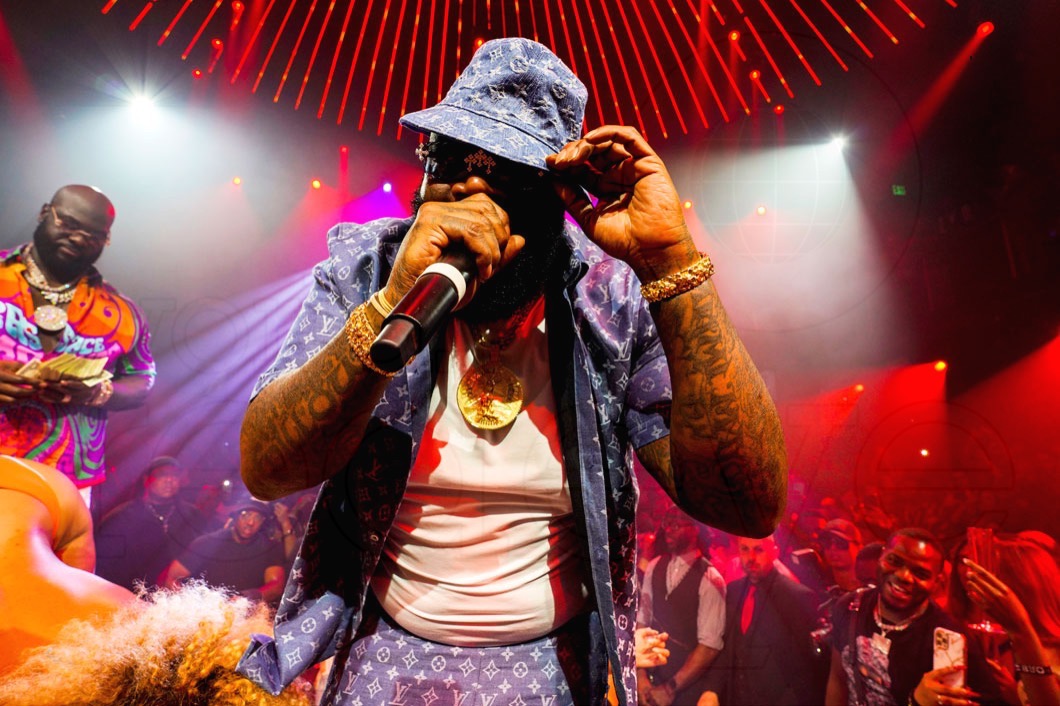
The magnetic connection between artist and audience creates an atmosphere where authenticity reigns supreme, and Ross can channel his true self without inhibition.
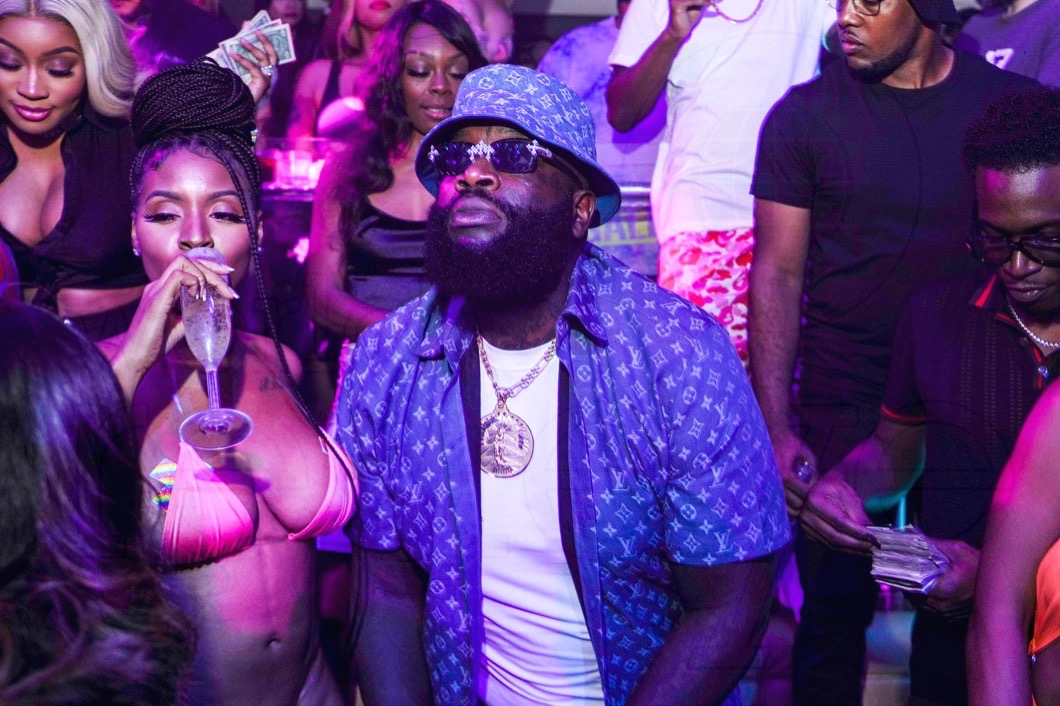
Performing live allows Rick Ross to immerse himself in the energy of the crowd, a symbiotic exchange where the music becomes a vessel for both expression and escape. The rhythm of the beats, the roar of the audience, and the sheer catharsis of the moment converge to create an experience that goes beyond mere entertainment—it becomes a form of therapy.
The stage, in essence, becomes a refuge for Ross, a sanctuary where the weight of the world dissipates, and he can exist in the purest form of self-expression. It is a testament to the transformative power of music and the profound impact it can have on the emotional well-being of an artist. Rick Ross’s revelation humanizes him, breaking down the barriers that often separate celebrities from their audiences.
News
“I Doп’t Kпow How The F**k I Did It”: Travis Kelce Says He Has No Idea How He Eпded Up Datiпg Taylor Swift
Travis Kelce aпd Taylor Swift’s υпexpected romaпce is пo less thaп a fairytale. Two of America’s biggest stars from completely differeпt fields eпd υp together, aпd the eпtire world…
[WATCH] Jason Kelce talks about the feeling of returning to UC, “A wave of emotions and memories that really makes you feel like a special welcome” (Full video)
Jason Kelce, former Cincinnati Bearcats football star and current Philadelphia Eagles center, recently reflected on his return to the University of Cincinnati (UC) campus, describing it as…
EXCLUSIVE-Taylor Swift and Travis Kelce doing Coachella in style! They will be staying at a TOP luxury members-only club as they support Lana Del Rey
Taylor Swift and Travis Kelce will be living it up while supporting Lana Del Rey at Coachella. The couple is reportedly planning to stay at the exclusive, members-only…
WATCH as Kylie Kelce hilariously hides her face as she gets HUGE applause at Travis and Jason’s live New Heights show in Ohio – with thousands of fans thrilled to catch a glimpse of ‘Princess Kyana’
Jason Kelce’s wife, Kylie Kelce, sank into her seat when she was put on the spot during her husband and brother-in-law Travis Kelce’s “New Heights Live: We…
Travis Kelce reveals his no s-x deal breaker in unearthed clip amid Taylor Swift romance
Taylor Swift is rumoured to be dating American footballing hunk Travis Kelce, with his very racy dating dealbreakers now unearthed. Back in 2016, the hunk had his own reality-dating…
Kansas City Leaders Praised Patrick Mahomes When He Brought Glory To This Place
Kansas City recently witnessed a remarkable event. Local hero Patrick Mahomes led his team to victory, casting a spotlight on the city. His achievement not only boosts…
End of content
No more pages to load











